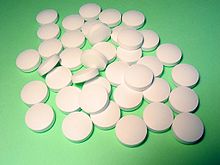As totalhealth wrote in February 2012, the National Institute for Health and Clinical Excellence (NICE) rejected the drug abiraterone for the treatment of prostate cancer. This was due to its limited benefit but high cost. However, new draft guidance published today by NICE, recommends that abiraterone should be used as a treatment option for castration-resistant metastatic prostate cancer.
This U-turn is the result of discussions between  NICE and one of the manufacturers of the drug who was able to revise its patient access scheme and provide the drug to the NHS at a discounted price.
NICE and one of the manufacturers of the drug who was able to revise its patient access scheme and provide the drug to the NHS at a discounted price.
Sir Andrew Dillon, Chief Executive of NICE said that the regulatory body is “…very pleased… [abiraterone] is an effective treatment, potentially extending life by more than three months, and it also allows patients to be treated at home as it can be taken orally.”
NHS bodies will now be able to make decisions locally about the availability and prescription of the treatment although, once the final approval is published, it is likely to be offered to patients who have previously been treated with a docetaxel-containing chemotherapy regimen and are resistant to castration due to the progression of metastases or a rise in prostate-specific antigen (PSA) levels.
For further information about new developments in the treatment of advanced prostate cancer, please click here or to arrange a consultation with totalhealth’s specialist in advanced prostate cancer, Professor Agamemnon Epenetos, please click here.









